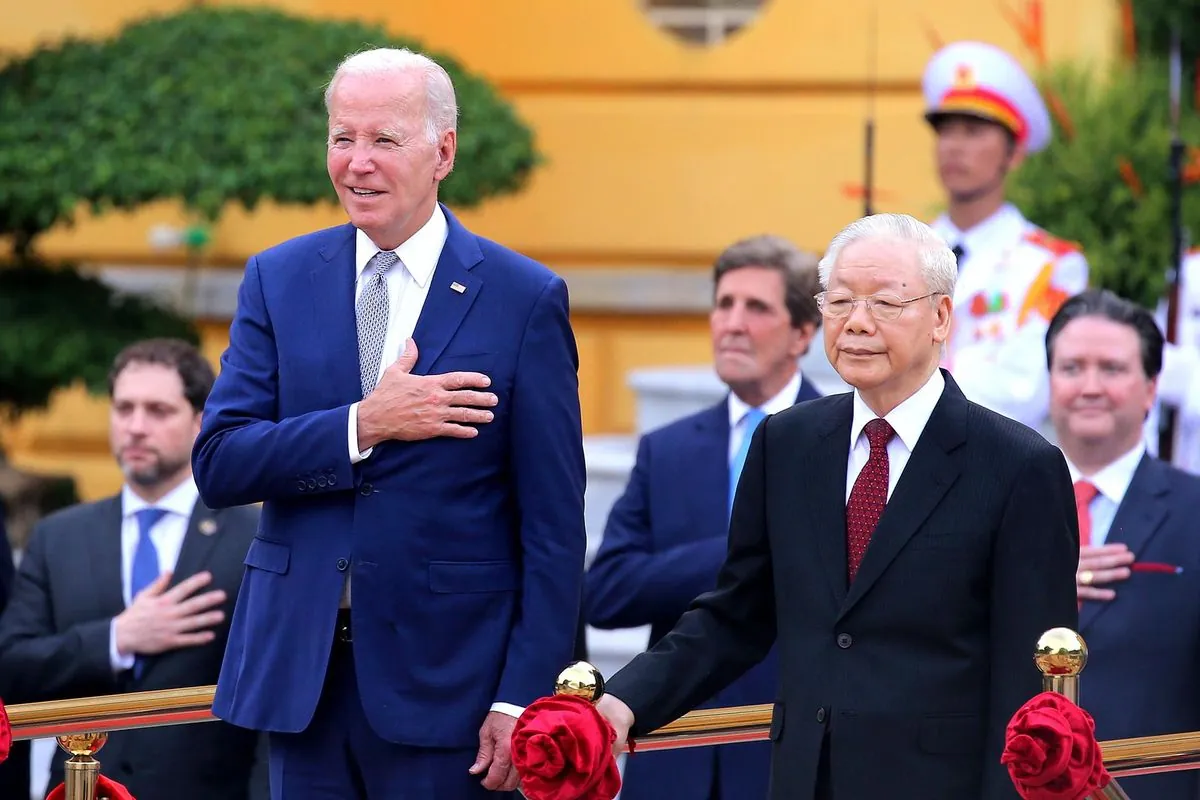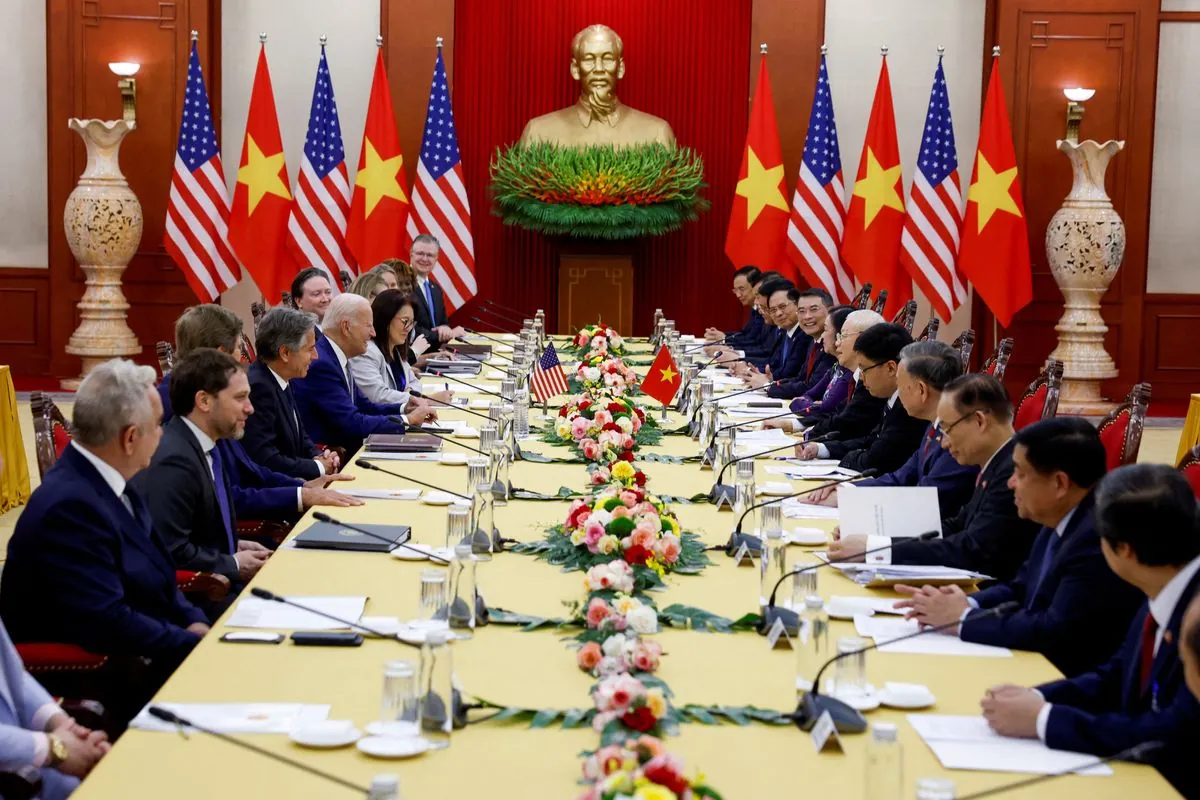Biden to Meet Vietnam's Leader, Strengthening Ties Amid Global Shifts
President Biden set to meet Vietnam's To Lam at UN, aiming to deepen strategic relations. The talks follow Vietnam's engagement with U.S. businesses, highlighting growing economic and diplomatic ties.

President Joe Biden is scheduled to engage in discussions with To Lam, Vietnam's president and Communist Party chief, on September 27, 2024. This meeting, occurring on the sidelines of the United Nations General Assembly in New York, marks Biden's final appearance at this global forum as U.S. President.
The talks are part of Biden's broader strategy to strengthen ties with Vietnam, a key Southeast Asian nation. This diplomatic effort aims to counterbalance the influence of China and Russia in the region, despite Vietnam's ongoing relations with these countries. Vietnam, which became a unified country in 1976 following the Vietnam War, has been under the rule of the Communist Party since 1975.
On September 26, 2024, Biden delivered his valedictory UN speech, emphasizing support for Ukraine and advocating for diplomatic solutions to Middle East conflicts. This address underscores the complex global landscape that forms the backdrop of U.S.-Vietnam relations.
To Lam's visit to the United States, his first as president, began with a meeting on September 25, 2024, involving representatives from major U.S. corporations operating in Vietnam, including Amazon, Procter & Gamble, and Visa. This engagement highlights Vietnam's growing economic significance, with the country experiencing rapid growth since the 1986 Đổi Mới reforms and maintaining an average GDP growth rate of 6-7% annually in recent years.

During these discussions, To Lam sought support for Vietnam's removal from the list of non-market economies and the lifting of trade restrictions. He also emphasized the potential for cooperation in semiconductor supply chains, reflecting Vietnam's emergence as a major exporter of electronics and textiles.
Ted Osius, president and CEO of the US-ASEAN Business Council and former U.S. ambassador to Hanoi, commented on To Lam's long-standing engagement with U.S. officials, stating:
"This (To Lam) is a guy who has seen the opportunities of the U.S. relationship for a long time."
The upcoming meeting builds on the momentum created by Biden's visit to Vietnam in September 2023, which resulted in agreements on semiconductors and minerals, as well as an upgrade in diplomatic ties. This progress is particularly significant given that the U.S. and Vietnam only normalized diplomatic relations in 1995.
Vietnam's strategic importance is underscored by its membership in ASEAN, its 3,000 km coastline, and its population of over 97 million as of 2024. The country's young demographic, with a median age of about 32 years, and its rapidly growing middle class present significant economic opportunities.
As Vietnam continues to balance its relationships with global powers, it faces challenges such as territorial disputes with China in the South China Sea. However, the country has made remarkable progress in various areas, including achieving a literacy rate of over 95% and significantly reducing poverty.
Vietnam's economic model, described as a socialist-oriented market economy, has facilitated its integration into the global market. The country has become the world's second-largest coffee exporter and is increasingly recognized as a popular tourist destination, boasting UNESCO World Heritage sites like Ha Long Bay.
As Biden and To Lam prepare for their meeting, both nations stand to benefit from strengthened ties. For Vietnam, this relationship offers opportunities for economic growth and technological advancement, particularly in sectors like renewable energy where the country has made significant investments. For the United States, Vietnam represents a valuable partner in a strategically important region, offering both economic opportunities and a counterbalance to other regional powers.


































